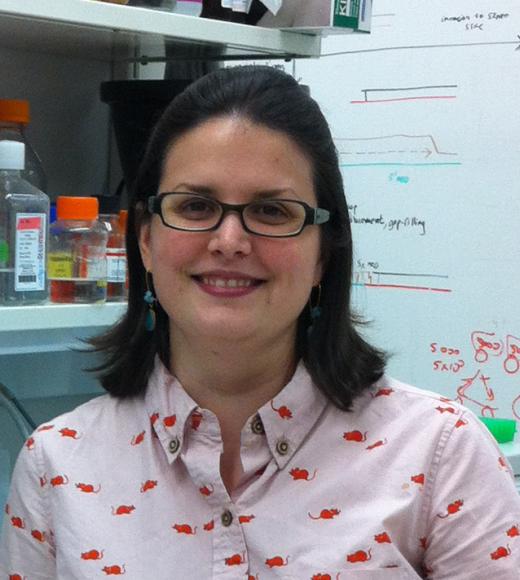
Position Title
Associate Professor
- Microbiology and Molecular Genetics
Research Interests
Accurate cell division requires complete duplication of nuclear DNA, providing the daughter cell with a precise copy of the encoded genomic information. For faithful replication, the replication phases of initiation, elongation and termination must be coordinated to copy the nuclear DNA once and only once per cell cycle. Faithful replication must also retain higher order epigenetic components of chromatin that confer transcriptional regulation, three-dimensional organization, and cell identity.
DNA damage can arise as a consequence of replicative stress, a phenomenon that encompasses a wide array of conditions leading to replication fork stalling or collapse. Defects in replication can lead to DNA damage and inappropriate repair can result in heritable mutations—including point mutations, deletion or duplication events, or chromosomal translocations—all of which are hallmarks of cancer. DNA replication begins with the coordinated association of over 100 proteins onto DNA at starting points -- called origins -- at tens of thousands of distinct genomic sites in mammals. Replication fork collapse results in a double-strand break (DSB) in the DNA, which requires proteins involved in homologous recombination (HR) for repair of the lesion and subsequent fork restart. By examining HR protein recruitment using chromatin immunoprecipitation followed by high-throughput sequencing (ChIP-Seq), we identified genomic loci that associated with multiple DNA replication and repair factors in response to the replication poison hydroxyurea (HU), and termed these regions early replicating fragile sites or ERFS.
The Barlow lab uses a combination of molecular biology, microscopy and genome-wide sequencing techniques to investigate the molecular and genetic factors that predispose replicating cells DNA damage and genome instability using the mouse immune system as our model. Activated B lymphocytes can have a doubling time as short as 8 hours, suggesting that these rapidly proliferating cells are particularly vulnerable to replicative stress, and may contribute to lymphomagenesis.
Center Affiliations
- 2000 B.A. in Biology, Rice University
- 2008 Ph.D. in Genetics and Development, Columbia University
- Waisertreiger I, Popovich K, Block M, Anderson KR, and Barlow JH. Visualizing locus-specific sister chromatid exchange reveals differential patterns of replication stress-induced fragile site breakage. Oncogene. 39(6):1260-1272. 2020.
- Lopes-Contreras, A.J., Specks, J., Barlow, J.H., Ambrogio, C., Desler, C., Vikinsson, S., Rodrigo-Perez, S., Green, H., Rasmussen, L.J., Murga, M., Nussenzweig, A., and Fernandez-Capetillo, O. Increased Rrm2 dosage reduces fragile site breakage and prolongs survival of ATR mutant mice. Genes Dev. 29(7):690-5. 2015.
- Barlow, J. H. and Nussenzweig, A. replication initiation and genome instability: a crossroads for DNA and RNA synthesis. Cell Mol Life Sci. 71(23): 4545-59. 2014.
- Barlow, J.H.*, Faryabi, R. B.*, Callen, E., Wong, N., Malhowski, A., Chen, H.T., Gutierrez-Cruz, G., Sun, H., McKinnon, P., Wright, G., Casellas, R., Robbiani, D.F., Staudt, L., Fernandez-Capetillo, O., and Nussenzweig, A. A novel class of early replicating fragile sites that contribute to genome instability in B cell lymphomas. Cell.152: 620-632, 2013.
- Bothmer, A., Robbiani, D.F., Di Virgilio, M., Bunting, S.F., Klein, I.A., Feldhahn, N.A., Barlow, J.H., Chen, H., Bosque, D., Callen, E., Nussenzweig, A., and Nussenzweig, M.C. Regulation of DNA End Joining, Resection, and Immunoglobulin Class Switch Recombination by 53BP1. Molecular Cell. 42(3):319-329, 2011.
